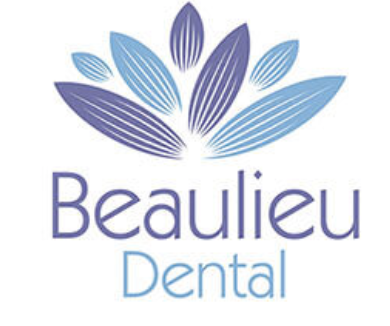Dental bonding, sometimes referred to as composite dental bonding or tooth bonding, is a cosmetic dentistry procedure used to restore minor damage or close teeth gaps. During the treatment, your dentist changes the affected teeth’ shape, size or colour using a tooth-coloured resin material. It is an ideal way to enhance the appearance of your smile.
What are the benefits of dental bonding?
Composite dental bonding can improve the appearance of your smile. During the process, a composite resin material is used to:
- Cover cracks or abrasions in your teeth.
- Conceal tooth discolouration.
- Keep your teeth in good shape by closing gaps and spaces.
- Add length to your teeth
- Sculpt your teeth into a different shape.
Similarly, composite resin can also be used for restorative dentistry, including:
- Filling cavities
- A more cosmetic alternative to old silver dental fillings
- Protecting the roots of teeth exposed because of gum disease
Is dental bonding common?
Dental bonding is a very common cosmetic dentistry procedure. As a matter of fact, it is one of the most popular dental care options today.
What’s the difference between dental bonding and veneers?
Porcelain veneers are ceramic shells that affix to your teeth’s front surfaces. Your dentist will typically have to remove some enamel from your natural teeth in order for the veneers to be placed. Porcelain veneers cannot be reversed once they have been applied. Approximately every 10 to 20 years, they will have to be replaced.
In contrast, dental bonding does not require significant enamel removal. Bonding, therefore, is completely reversible. Touch Ups are likely to be needed every three to ten years.
What happens before the teeth bonding procedure?
During your consultation with your dentist, you will discuss your cosmetic goals. The dentist will take dental X-rays and check your gums and teeth in order to assess your suitability for the procedure. Those with serious gum disease, tooth decay, or other oral health issues will likely need to be treated first.
What is the process of dental bonding?
Composite dental bonding involves the following steps:
- Choosing a shade. Using a shade guide, your dentist selects a composite resin material that matches the colour of your natural teeth.
- Preparation of your teeth. A conditioning liquid is applied to your teeth after the surface is roughened. Bonding material adheres better to teeth when these steps are followed.
- Composite resin material application. A putty-like resin material is applied, moulded, and smoothed to the desired shape.
- Curing the resin material. The composite resin is hardened using a special curing light, allowing it to bond to the tooth surface.
- Dental polishing. To finish, your dentist will polish your teeth for a natural look.
This procedure typically takes between 30 and 60 minutes per tooth.
How painful is composite dental bonding?
The pain-sensing nerve inside your tooth won’t be touched during dental bonding, so it shouldn’t be painful. Dental bonding is often performed without anaesthesia. It is possible for some people to experience temporary sensitivity following their dental bonding procedure. In these situations, over-the-counter pain relievers can provide relief from discomfort.
What should you expect after teeth bonding?
Maintaining a healthy and bright smile after dental bonding requires proper oral hygiene. Keep your teeth clean by brushing twice a day using fluoride toothpaste and flossing between your teeth once daily. Regular dental check-ups and professional cleaning are also important.
What are the advantages of composite dental bonding?
Compared to other cosmetic treatments, composite dental bonding offers many benefits.
- The procedure is minimally invasive. Dental bonding doesn’t require enamel removal, unlike porcelain veneers and dental crowns.
- It is cost-effective. Bonding is one of the most affordable cosmetic dental procedures.
- It is versatile. Chips, cracks, gaps, and discolourations can all be concealed with dental bonding.
- It’s fast and convenient. Other cosmetic procedures require multiple appointments, such as veneers and crowns. It is possible to perform dental bonding in just one appointment.
Are there any disadvantages to teeth bonding?
Despite its stain resistance, dental bonding is not stain-resistant like porcelain restorations. Bonding is also not as durable as other restorative options like veneers or crowns. Over time, bonding materials can also chip.
With dental bonding, you can easily make minor cosmetic changes. Another treatment, such as porcelain veneers, may be more appropriate if you’re looking for a more dramatic transformation.
Following dental bonding, do teeth need special care?
The short answer is no. Teeth bonding does not require any downtime. After leaving your dentist’s office, you will be able to resume normal activities. Keep your mouth healthy by following good oral hygiene practices.
It would be best if you avoided habits such as biting your fingernails, chewing on pens, or opening packages with your teeth because bonding material can chip. When you bite down on a bonded tooth, you might notice sharp edges, or your tooth feels unusual. If that happens, you need to call your dentist.
What is the lifespan of dental bonding?
A number of factors affect how long bonding materials last, including the number of teeth treated and your oral habits. Generally, bonding material lasts for three to ten years before it requires touch ups or replacements.
Is bonding good for your teeth?
There are no risks associated with dental bonding in general. It’s perfectly safe if your teeth and gums are healthy.
Nevertheless, suppose your dental health is compromised because of extensive tooth decay, gum disease or some other serious issue. In that case, dental bonding may not be the best option for you immediately, as those conditions will need to be treated first.
What is the best time to see my dentist?
Schedule an appointment with your dentist if you have chips, cracks, discolouration, or any other concerns about the way your teeth look. An individualised treatment plan can be designed based on your cosmetic goals.
A quick visit to your dentist will also be able to correct any bite issues caused by cosmetic dental bonding.
Composite Dental Bonding at Beaulieu Dental
You may feel less confident when your smile is marred by cosmetic imperfections like chips, gaps, cracks, or discolouration. Adding balance and uniformity to your smile is easy with dental bonding. Contact us today to find out if it’s right for you, and we’ll be happy to assist you.
Beaulieu Dental is one of Chelmsford’s most modern and welcoming dental practices.
There is a wide range of treatment options available at our practice, and we accept new private and Denplan patients. We have a 24-hour, 7-day week emergency service. You can also see our hygienist without first seeing a dentist by scheduling a direct-access appointment.
You can read more about Denplan Dental Care on our About us page.
Got an emergency? We offer 24-hour emergency dental treatment, so contact us now.


